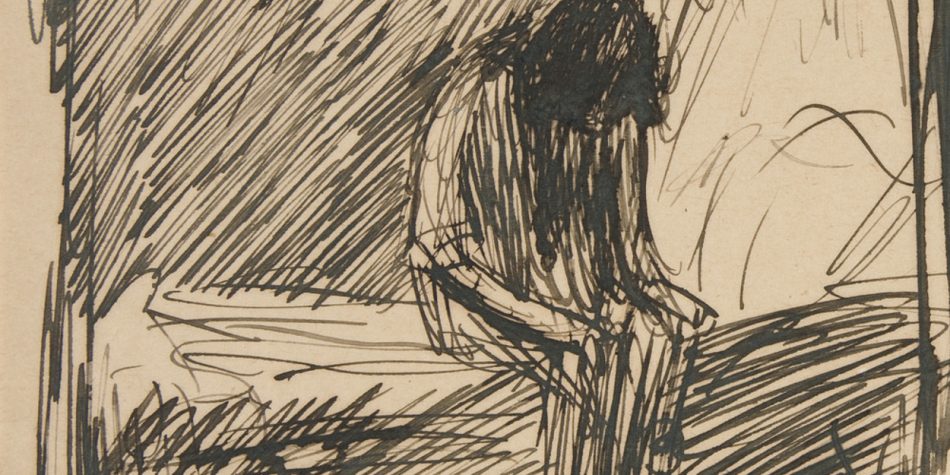A deep and abiding commitment to religious freedom is woven into the fabric of American politics and society, starting with the very first line of the first amendment to the U.S. Constitution: “Congress shall make no law respecting an establishment of religion, or prohibiting the free exercise thereof.”
Throughout its history, America’s devotion to religious freedom has often translated into action taken on the human rights issue of religious freedom abroad. The U.S. has a lengthy record of promoting and protecting religious freedom around the world. From the early days of the republic, American diplomats and others advocated for the rights of persecuted religious minorities, such as Christians in the Ottoman Empire and Jews in Russia. In 1998, the “International Religious Freedom Act” codified the U.S. policy of opposing violations of religious freedom while openly promoting respect for religious freedom throughout the world. This Act was born, in large part, from the concern of many American groups and policymakers about the decline of religious freedom globally.
Yet, for all this historical and institutional grounding, the United States—and, in fairness, much of the western world—has for far too long failed to hold China to account for a record of human rights abuses, and specifically, religious freedom violations, that rivals the most appalling and repressive regimes in recent history.
We have seen these abuses play out over decades and span many faith communities, with persecution heaped upon Tibetan Buddhists, Muslims, Christians, and religious movements such as the Falun Gong. Despite China’s blatant disregard for religious freedom, and its often open hostility and persecution for religious minorities, pundits and policymakers frequently label China “too big to fail” and turn a blind eye to its abysmal record of brutality and suppression.
Appeasement has emboldened China’s abuse of the Uyghurs
We can now clearly see the results of this attitude of appeasement. China has faced little more than mild rebukes for its horrifying history of abuse, and now the Chinese Communist Party (CCP) appears more emboldened than ever before in its attacks on non-sanctioned religions. This has become most disturbingly evident in Xinjiang, an ostensibly autonomous region in a remote corner of western China. For the roughly 11 million Uyghurs who call Xinjiang home, China’s lack of respect for religious freedom and propensity for ethnic cleansing has taken the form of growing brutality and repression.
They have faced brainwashing, torture, neglect, and in some cases death
The Uyghurs, a predominantly Muslim ethnic minority, can trace their roots in China back thousands of years. Their language is closely related to Turkish, and they are among the oldest Turkic-speaking peoples of Central Asia. The Uyghurs remained independent in the region known as East Turkestan for thousands of years until the invasion of the Manchu Empire in the late 1800s. Following a bloody war, the Manchu Empire annexed East Turkestan and renamed it Xinjiang.
Over more than a century since that annexation, the Uyghurs have faced an intense struggle to ensure their cultural survival, as well as increasingly harsh responses in the face of any form of political dissent or expression of their identity as Uyghurs. For some years, the world has known about the unlawful incarceration of more than a million Uyghurs into so-called “re-education camps” where they have faced brainwashing, torture, neglect, and in some cases death. While exact counts are unknown, it is estimated that around 10% of the entire Uyghur population is currently being detained.
In 2017, I stood outside the Chinese embassy in Washington, D.C., with hundreds of Uyghurs—including the acknowledged “mother” of the Uyghur people, Rebiya Kadeer—to protest the disappearance of their family members into what should only be called modern-day concentration camps. Nevertheless, despite expressions of outrage at the largest incarceration of an innocent civilian population since perhaps the dark days of World War II, China has been anything but deterred.
Uyghur people facing crimes of genocide
We continue to learn that China’s actions to erase the Uyghur community have been even more far-reaching and sinister than previously understood. Over the last several years, programs designed to destroy Uyghur culture in their own homeland and in their homes have been instituted as the world sits idly by.
In 2017, China instituted the “Pair Up and Become Family” program where Han CCP officials move into the homes of Uyghur families under the auspices of establishing new familial bonds. For approximately one week every two months, these officials move into the only safe space many Uyghurs have and report any non-approved religious or other activities. At best, this is a crude attempt to stifle Uyghur culture in the privacy of one’s own home. At worst, there have been charges of mass rapes of Uyghur women as many of these CCP officials openly share beds and are often placed in homes where all-male family members have been placed in camps.
Further contributing to the cultural genocide is the evidence of attempts to prevent births of ethnically Uyghur children. The Associated Press recently published a detailed report with evidence that intrauterine devices, sterilization, and even abortions are being forced on Uyghur women both in and out of the camps. The report details that having multiple children can also be a pretext for being sent to one of the numerous concentration camps established by the CCP. Moreover, since 2014, mixed Han-Uyghur marriages are publicly lauded and highly rewarded by the CCP with annual government “bonuses” of 10,000 yuan paid to couples during the first five years of marriage.
Huge fines for violating family planning restrictions—particularly galling, given that such restrictions are being loosened for Han Chinese—represent just one more way in which the Chinese government is violating international law in its racist and religiously bigoted attempts to make the Uyghur people a subservient and declining minority in their native homeland of East Turkestan. According to the AP, “the hundreds of millions of dollars the government pours into birth control has transformed Xianjiang from one of China’s fastest-growing regions to among its slowest in just a few years.”
This racial and social attack on the Uyghurs led writer Andrew Sullivan to label China a “genocidal menace.” The words may sound provocative, but he has hit the mark with this accusation. The Genocide Convention defines this gravest of crimes as acts undertaken with “the intent to destroy in whole or in part, a national, ethnical, racial or religious group as such”; imposing measures intended to prevent births within the group is included in the Treaty as one of the acts that constitute the crime of genocide.
I will never forget the pain on Rebiya Kadeer’s face when she first told me about the disappearance of dozens of her family members into these black hole concentration camps. I can only imagine how that pain has been compounded by the continuing indignities and even genocidal crimes that the CCP continues to heap upon the proud Uyghur people. In the face of such blatant persecution and the Chinese government’s clear efforts to control the Uyghur population, we cannot accept a continuation of the same appeasement we have seen for years on end.
Holding China to account
The U.S. Congress took a first step toward holding China to account with the passage, by an overwhelming majority, of the Uyghur Human Rights Policy Act. This law requires various U.S. government agencies to report on abuses by the Chinese government against the Uyghurs and encourages the President to impose Magnitsky sanctions against Chinese officials found to have been complicit in these abuses. Predictably, China denounced the bill as a “malicious” attack.
However, this Act only represents a first step. A next important step should be the adoption of the Uyghur Forced Labor Prevention Act, which would direct the U.S. Customs and Border Protection Services to presume that any goods produced in the Xinjiang region are the result of forced labor.
Nury Turkel, co-founder of the Uyghur Human Rights Project and a recently appointed Commissioner on the U.S. Commission on International Religious Freedom, wrote in TIME, “I understand the hesitancy of some U.S. officials to use this authority and further aggravate the already complicated U.S.-China relationship. However, now is the time for action; we must demonstrate that there will be serious consequences for the Communist Party’s alleged crimes against humanity.”
Religious freedom in China matters to us all
Americans of any religious creed—or even those with no religious affiliation whatsoever— should care deeply about the plight of the Uyghurs
Readers of this publication who are members of The Church of Jesus Christ of Latter-Day Saints will recognize religious freedom as a revered tenet in their faith. When the Church adopted a set of “Articles of Faith” in 1880, religious freedom received prominent billing in the 11th Article, which states, “We claim the privilege of worshiping Almighty God according to the dictates of our own conscience, and allow all men the same privilege, let them worship how, where, or what they may.”
In this spirit, Americans of any religious creed—or even those with no religious affiliation whatsoever— should care deeply about the plight of the Uyghurs and the ongoing repression and persecution they have faced at the hands of the CCP. Moreover, the U.S. and other world governments should stand ready to use every economic and diplomatic tool at their disposal to inflict real economic punishment on those who are directing these criminal policies against the Uyghur community.

















